Related Research Articles

Brittany is a peninsula, historical country and cultural area in the north-west of modern France, covering the western part of what was known as Armorica during the period of Roman occupation. It became an independent kingdom and then a duchy before being united with the Kingdom of France in 1532 as a province governed as a separate nation under the crown.
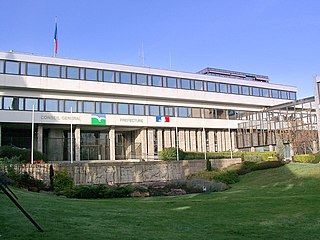
The Côtes-d'Armor, formerly known as Côtes-du-Nord until 1990, is a department in the north of Brittany, in northwestern France. In 2019, it had a population of 600,582.

The Breton Liberation Front was a paramilitary organisation founded in 1963 whose aims were to seek greater autonomy for the region of Brittany separate from the rest of France. Brittany is a province in northwest France, and formed an independent Duchy of Brittany until the treaty of union in 1532. The group allegedly had strong allies with ETA as their struggles were almost the same.

The Breton Revolutionary Army is an illegal armed organization that is part of the Breton nationalism movement in the Brittany region of France.
Yann Fouéré, also known as Seàn Mauger was a Breton nationalist and a European federalist. His French birth certificate names him as Jean Adolphe Fouéré, a French name, as the French Third Republic did not allow Breton names.
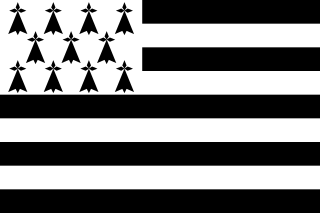
Breton nationalism is a form of regional nationalism associated with the region of Brittany in France. The political aspirations of Breton nationalists include the desire to obtain the right to self-rule, whether within France or independently of it, and to acquire more representation within the European Union, United Nations, and other international institutions.

Breiz Atao, was a Breton nationalist journal in the mid-twentieth century. It was written in French, and has always been considered as a French nationalist journal by the non-francized Bretons. The term is also used for the broader movement associated with the journal's political position.
The Party for the Organization of a Free Brittany was a Breton political party that advocated political sovereignty for Brittany. Its initials "POBL" form a backronym, as the word pobl in Breton means "people" or "community".

Long before World War II, the various Breton nationalist organizations were often anti-French and anti-colonialist, opposed to the Central Government's policy of linguistic imperialism, and critical to varying degrees of post-French Revolution-style Republicanism. Some Breton nationalists were openly pro-fascist. The extent to which this led Breton nationalists into collaboration with the Axis Powers and their motivations, remains a matter of often bitter historical controversy and debate.
The Breton National Party was a nationalist party in Brittany that existed from 1931 to 1944. The party was disbanded after the liberation of France in World War II, because of ties to the Third Reich.
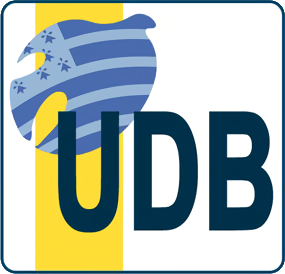
Breton Democratic Union is a Breton nationalist, autonomist, and regionalist political party in Brittany and Loire-Atlantique. The UDB advocates devolution for Brittany as well as the promotion of its regional languages and its associated culture.
James Bouillé was a French architect from Brittany.
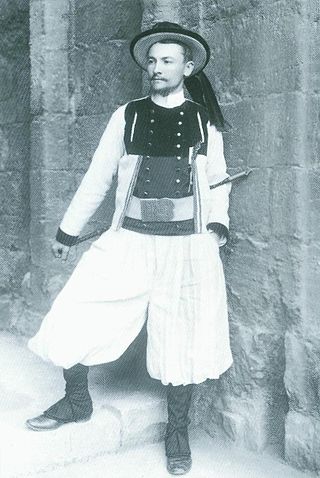
François-Joseph-Claude Jaffrennou was a Breton language writer and editor. He was a Breton nationalist and a neo-druid bard. He is also known as François Taldir-Jaffrennou, since he also used the bardic name Taldir. He was one of the pioneers of the Breton autonomist movement.
Camille Le Mercier d'Erm was a French poet, historian and Breton nationalist. He later adopted the neo-Bardic name Kammermor. He is also known as Kamil Ar Merser 'Erm, the Breton language form of his name. His work as a poet and historian is marked by nationalist claims and calls to rebellion against the French state on the model of Irish nationalism.
Adolphe Yves Marie Le Goaziou was a bookseller, publisher and member of the French Resistance in wartime Brittany.
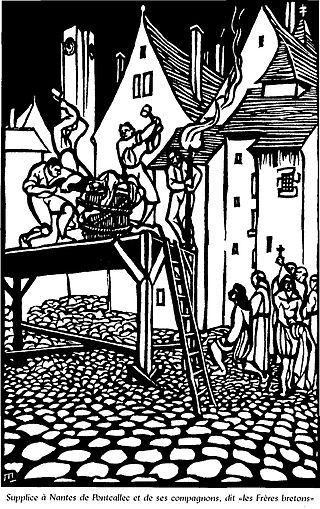
The Pontcallec conspiracy was a rebellion that arose from an anti-tax movement in Brittany between 1718 and 1720. This was at the beginning of the Régence (Regency), when France was controlled by Philippe II, Duke of Orléans during the childhood of Louis XV. Led by a small faction of the nobility of Brittany, it maintained links with the ill-defined Cellamare conspiracy, to overthrow the Regent in favour of Philip V of Spain, who was the uncle of Louis XV. Poorly organised, it failed, and four of its leaders were beheaded in Nantes. The aims of the conspirators are disputed. In the 19th and early 20th century it was portrayed as a proto-revolutionary uprising or as a Breton independence movement. More recent commentators consider its aims to have been unclear.
Ronan Leprohon was a 20th-century French Breton academic historian, politician, and lifelong Breton nationalist.

The Roc'h Trédudon attack was the destruction of the Roc'h Trédudon transmitter in Plounéour-Ménez, Finistère, by a series of bombs on the night of 13 to 14 February 1974. It was claimed by the Breton independence organization Breton Liberation Front (FLB), and deprived western Brittany of television for several weeks. It took place against a backdrop of the revival of the Breton nationalist movement, and sparked off fierce reactions and controversy as to the true identity of the perpetrators.